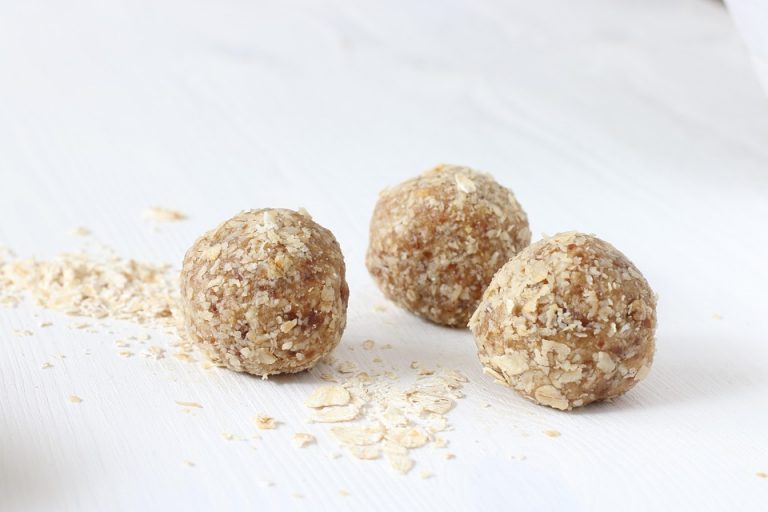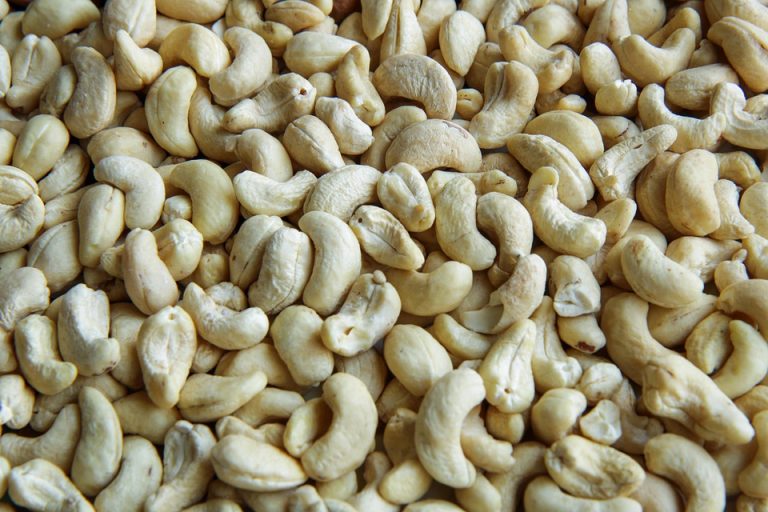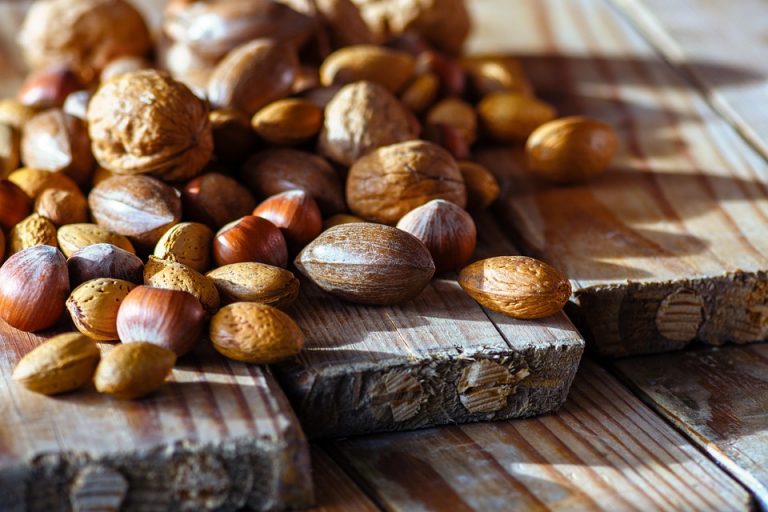Are you feeling out of sync? Hormonal imbalances can wreak havoc on your mood, energy, and overall well-being. The good news is that certain foods can help you reclaim that balance. Let’s dive into seven incredible foods that naturally balance your hormones today.
Contents
- Understanding Hormonal Balance and Its Importance
- 1. Fatty Fish: The Omega-3 Powerhouses
- 2. Leafy Greens: Nutrient-Dense Wonders
- 3. Avocados: Creamy and Nourishing
- 4. Nuts and Seeds: Tiny Powerhouses
- 5. Fermented Foods: Gut Health Champions
- 6. Berries: Nature’s Sweet Treats
- 7. Whole Grains: Sustained Energy Sources
- Putting It All Together: Meal Ideas for Hormonal Balance
- Bottom Line
Understanding Hormonal Balance and Its Importance
Hormones are the body’s chemical messengers, affecting everything from your metabolism to your mood. When they’re out of balance, it can feel like your life is spiraling. You might experience fatigue, weight gain, anxiety, or even irregular periods.
Balancing your hormones isn’t just about feeling good; it’s about thriving. When your hormones are in harmony, you feel energized, focused, and ready to take on the world. So, what can you eat to help restore that balance?
1. Fatty Fish: The Omega-3 Powerhouses
Fatty fish like salmon, mackerel, and sardines are rich in omega-3 fatty acids. These essential fats play a crucial role in hormone production and regulation.
- Mood Booster: Omega-3s can help reduce anxiety and depression, giving your mood a much-needed lift.
- Anti-Inflammatory: They combat inflammation, which can disrupt hormonal balance.
Try incorporating fatty fish into your meals at least twice a week. You’ll not only enjoy a delicious dinner but also support your hormonal health.
2. Leafy Greens: Nutrient-Dense Wonders
Leafy greens such as spinach, kale, and Swiss chard are packed with vitamins and minerals that support hormone production. They’re low in calories but high in nutrients, making them a fantastic addition to your diet.
- Magnesium-Rich: Magnesium plays a vital role in regulating cortisol, the stress hormone. Lowering stress can help keep your hormones balanced.
- Fiber-Full: The fiber in leafy greens helps maintain a healthy gut, which is essential for hormone regulation.
Aim for at least one serving of leafy greens in your daily meals. Toss them in salads, smoothies, or sauté them as a side dish.
3. Avocados: Creamy and Nourishing
Avocados are not just delicious; they’re also packed with healthy fats that support hormonal balance.
- Healthy Fats: They contain monounsaturated fats that help reduce inflammation and support hormone production.
- Rich in Vitamins: Avocados are a great source of vitamins E and B, which help regulate hormone levels.
Add avocados to your breakfast toast, salads, or even smoothies for a creamy, nutrient-filled boost.
4. Nuts and Seeds: Tiny Powerhouses
Nuts and seeds, like walnuts, almonds, chia seeds, and flaxseeds, are rich in healthy fats and nutrients that support hormonal health.
- Hormone Regulation: They contain zinc and selenium, which are vital for proper hormone function.
- Omega-3 and Fiber: Flaxseeds are particularly high in omega-3s and fiber, both of which support gut health and hormonal balance.
Snack on a handful of nuts or sprinkle seeds on your meals for an easy and delicious way to support your body.
5. Fermented Foods: Gut Health Champions
Fermented foods like yogurt, kimchi, and sauerkraut are incredible for your gut health, which directly impacts your hormones.
- Probiotics: These foods are rich in probiotics that help maintain a healthy gut microbiome, essential for hormone production.
- Digestive Support: A healthy gut can improve digestion and reduce inflammation, leading to better hormonal balance.
Incorporate fermented foods into your diet a few times a week. A scoop of yogurt in a smoothie or a side of kimchi with dinner can make a significant difference.
6. Berries: Nature’s Sweet Treats
Berries such as blueberries, strawberries, and raspberries are not only delicious but also packed with antioxidants that support hormonal balance.
- Antioxidant-Rich: They help combat oxidative stress, which can disrupt hormone levels.
- Low in Sugar: Berries are lower in sugar compared to other fruits, making them a healthier choice for snacking.
Enjoy a bowl of mixed berries as a snack or add them to your breakfast for a naturally sweet treat.
7. Whole Grains: Sustained Energy Sources
Whole grains like quinoa, brown rice, and oats provide your body with sustained energy and support hormonal balance.
- Fiber-Full: They’re rich in fiber, which helps regulate blood sugar levels and keeps hormones in check.
- B Vitamins: Whole grains contain essential B vitamins that are crucial for hormone production.
Substituting refined grains with whole grains can make a world of difference. Start your day with oatmeal or enjoy a quinoa salad for lunch.
Putting It All Together: Meal Ideas for Hormonal Balance
Now that you know the foods that naturally balance your hormones, let’s explore some meal ideas to incorporate them into your diet:
Breakfast Ideas
- Avocado Toast: Top whole grain bread with smashed avocado, a sprinkle of chia seeds, and sliced berries.
- Yogurt Parfait: Layer yogurt with mixed berries and a handful of nuts for a delicious, filling breakfast.
Lunch Ideas
- Quinoa Salad: Mix cooked quinoa with leafy greens, diced avocado, walnuts, and a squeeze of lemon.
- Veggie Wrap: Fill a whole grain wrap with hummus, leafy greens, and a variety of colorful veggies.
Dinner Ideas
- Salmon with Greens: Bake a salmon fillet and serve it over a bed of sautéed spinach and garlic.
- Stir-Fried Veggies: Stir-fry a mix of your favorite veggies and tofu in a bit of olive oil, adding fermented soy sauce for flavor.
Bottom Line
Balancing your hormones doesn’t have to be complicated. By incorporating these seven foods into your daily meals, you can nourish your body and support your hormonal health. Remember, it’s all about making small, sustainable changes that lead to a happier, healthier you.
Feeling inspired? Start today by exploring one of these foods, and notice how your body responds. You deserve to feel vibrant and balanced!
FAQ
Q: How long will it take to notice changes in my hormonal balance?
A: Everyone’s body is different, but many people notice improvements in mood and energy levels within a few weeks of making dietary changes.
Q: Can I still eat processed foods?
A: While it’s okay to indulge occasionally, focus on whole, nutrient-dense foods for the best results in balancing your hormones.
Q: Are there any supplements I should consider?
A: It’s always best to consult with a healthcare professional before adding supplements to your routine, as they can help determine what’s right for you.
Get Your FREE Natural Health Guide!
Subscribe now and receive our exclusive ebook packed with natural health tips, practical wellness advice, and easy lifestyle changes, delivered straight to your inbox.




